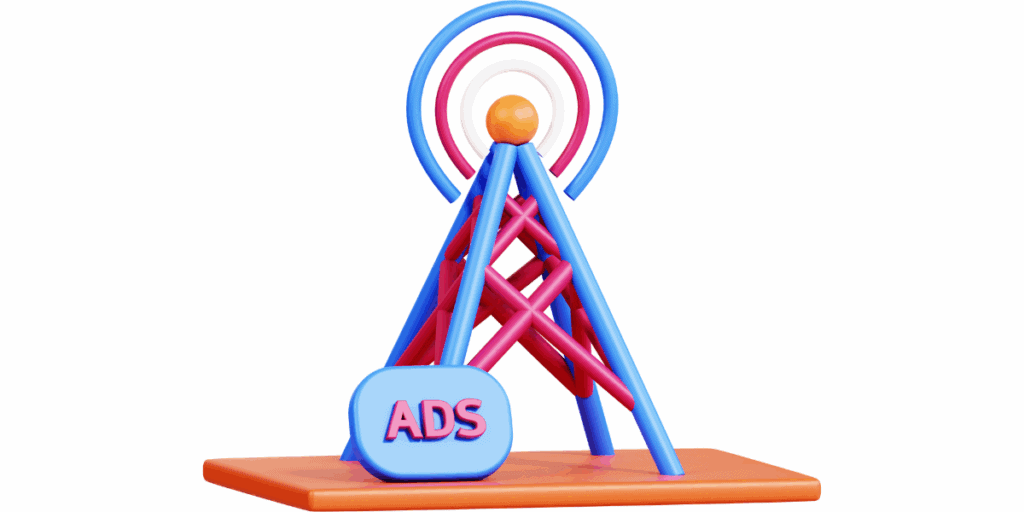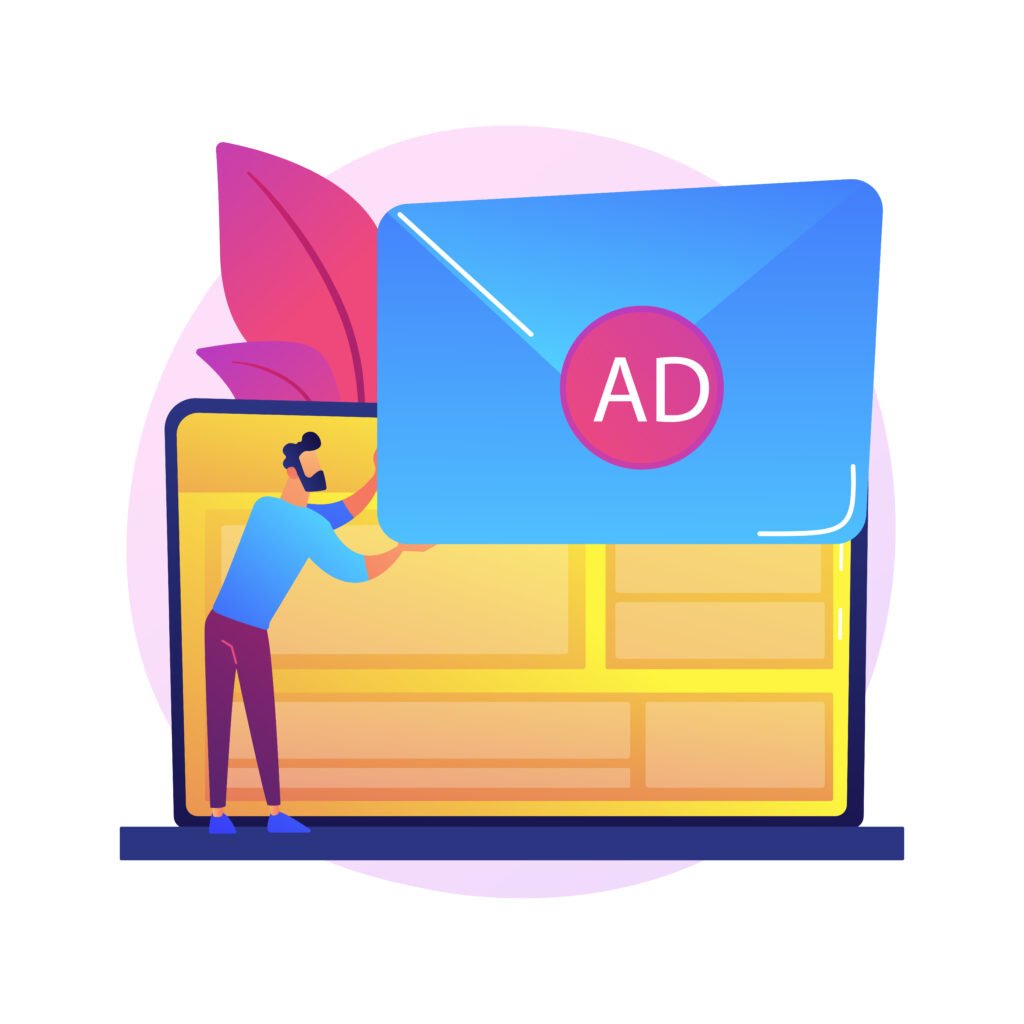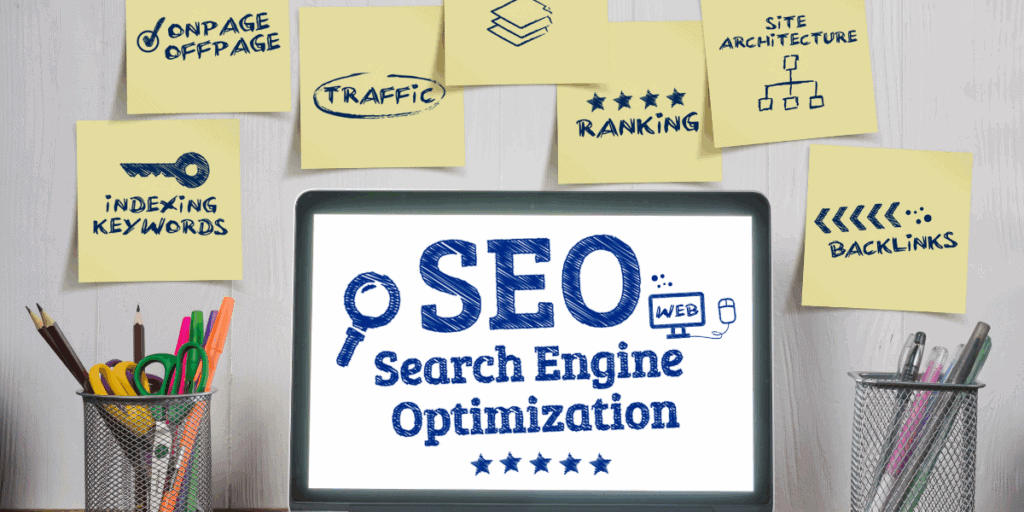The brutal truth about eCommerce success? Most online store owners are drowning in a sea of marketing channels, burning through advertising budgets faster than they can say “abandoned cart recovery,” and watching competitors seemingly effortlessly scale while their growth stagnates.
Here’s what separates the thriving eCommerce empires from the struggling startups: they’ve cracked the code on strategic partnerships. Specifically, they’ve found the right eCommerce marketing agency to amplify their growth trajectory.
But here’s the kicker 73% of eCommerce businesses work with external ecommerce marketing agencies, yet many still struggle to achieve the explosive growth they’re promised. The difference isn’t in having an agency; it’s in choosing the right agency and knowing how to work with them effectively. Top-performing agencies maintain client retention rates of 85%+ precisely because they deliver consistent results and build genuine partnerships rather than transactional relationships.
This comprehensive guide will transform you from feeling overwhelmed by agency options into becoming a strategic decision maker who can identify, check, and partner with an e-commerce marketing agency that serves as your secret weapon for sustainable growth.
What is an e-commerce Marketing Agency?
An e-commerce marketing agency is far more than a traditional digital marketing company with a fancy website. These specialized powerhouses live and breathe online retail, understanding the unique challenges, opportunities, and nuances that separate successful eCommerce businesses from those that fade into obscurity.
Definition and Core Services
Think of an eCommerce marketing agency as your external growth team—a group of specialists who’ve dedicated their careers to mastering the art and science of driving online sales. Unlike general marketing agencies that spread their expertise across multiple industries, these agencies focus exclusively on the e-commerce ecosystem.
Their core mission? To transform your online store into a revenue-generating machine that attracts, converts, and retains customers while maximizing your return on every marketing dollar spent.
Difference from General Digital Marketing Agencies
The chasm between a general digital marketing agency and a specialized e-commerce marketing agency is wider than most business owners realize. General agencies might know how to run Facebook ads or optimize websites, but they lack the deep understanding of e-commerce-specific challenges.
Consider this scenario: A general agency might create beautiful display ads that generate thousands of clicks. But an eCommerce marketing agency knows that clicks without conversions are expensive vanity metrics. They understand the customer journey from awareness to buying, post-purchase retention, and lifetime value optimization.
Specialized eCommerce agencies speak the language of conversion rates, average order values, customer acquisition costs, and lifetime value ratios. They know that a 0.1% improvement in conversion rate can translate to thousands of extra revenue for a store generating significant traffic.
Specialization Benefits for Online Stores
The specialization advantage becomes crystal clear when you examine the results. eCommerce marketing agencies don’t understand marketing; they understand retail psychology, seasonal trends, platform-specific optimization techniques, and the intricate dance between customer acquisition and retention.
They’ve seen what works across hundreds of online stores, giving them pattern recognition that general agencies simply cannot match. This translates into faster implementation, better results, and strategic insights that can revolutionize your approach to online sales.
When You Need an eCommerce Marketing Agency

Recognizing the right time to partner with an e-commerce marketing agency can be the difference between struggling to scale and experiencing explosive growth. The decision isn’t about having enough budget, it’s about strategic timing and recognizing the symptoms of growth bottlenecks.
Revenue Thresholds and Growth Stages
Most successful eCommerce businesses consider agency partnerships when they hit specific revenue milestones. The $50,000 monthly revenue mark often serves as a crucial threshold where the complexity of marketing channels and the need for specialized expertise becomes clear.
At this stage, business owners find themselves juggling many advertising platforms, struggling to maintain consistent growth, and realizing that their DIY marketing approach has hit a ceiling. The businesses that scale past seven figures almost universally have one thing in common: they’ve built strategic partnerships with specialized agencies.
However, revenue isn’t the only indicator. Businesses experiencing rapid growth spurts, even at lower revenue levels, often enjoy agency expertise to manage and sustain that growth effectively.
Internal vs External Capability Assessment
The harsh reality many e-commerce entrepreneurs face is the gap between their business skills and marketing expertise. Building an internal marketing team capable of handling complex e-commerce strategies requires a significant investment in recruitment, training, tools, and management overhead.
Consider the expertise required for modern eCommerce marketing: paid advertising specialists, conversion rate optimization experts, email marketing strategists, SEO professionals, content creators, and data analysts. Hiring this level of talent internally could easily cost $300,000+ annually before considering the learning curve and management complexities.
An experienced eCommerce marketing agency brings this entire team at a fraction of the cost, with the added benefit of cross-industry experience and proven systems.
Cost-Benefit Analysis Framework
Smart eCommerce business owners approach agency partnerships through a cost benefit lens. The question isn’t whether you can afford an agency, it’s whether you can afford not to have one.
A well-chosen agency typically delivers ROI improvements of 2-4x within the first six months. For a business spending $10,000 monthly on marketing with mediocre results, an agency that improves performance by 200% essentially pays for itself while freeing up the owner’s time for strategic business development.
Warning Signs You Need Expert Help
Several red flags say it’s time to seek professional eCommerce marketing expertise. If your customer acquisition costs are rising while conversion rates stagnate, you’re experiencing this classic symptom of marketing inefficiency.
Another warning sign is the feast-or-famine revenue cycle. Businesses dependent on inconsistent marketing efforts often see dramatic revenue swings, indicating a lack of a systematic approach to customer acquisition and retention.
The inability to scale advertising spend profitably represents perhaps the most critical warning sign. If increasing your advertising budget doesn’t proportionally increase profitable sales, you’re likely dealing with fundamental conversion or targeting issues that need specialized expertise.
Essential Services Every eCommerce Marketing Agency Should Offer
The landscape of eCommerce marketing services is vast, but not all services are created equal. The most effective agencies focus on a core set of services that directly impact your bottom line, rather than offering a scattered approach to digital marketing.
Paid Advertising Management:

Paid Advertising Management can be further broken down for following services:
Google Ads and Shopping Campaigns
Google Ads represents the backbone of most successful eCommerce advertising strategies, but the complexity of managing profitable campaigns extends far beyond keyword selection and bid management. Expert agencies understand the intricate relationship between search campaigns, shopping campaigns, and display remarketing.
Sophisticated Google Ads management involves campaign structure optimization, negative keyword sculpting, audience layering, and advanced bid strategies that adapt to your specific business model. The best agencies leverage Google’s automated bidding features while maintaining granular control over campaign performance.
Shopping campaigns need particular expertise in product feed optimization, competitive analysis, and seasonal strategy adjustments. Agencies with deep eCommerce experience understand how to structure shopping campaigns for maximum visibility while maintaining profitable cost-per-acquisition ratios.
Social Media Advertising
Social media advertising for e-commerce has evolved into a sophisticated ecosystem requiring platform-specific expertise. Facebook and Instagram advertising, while sharing similar targeting capabilities, need different creative approaches and campaign structures to maximize effectiveness.
Expert agencies understand the nuances of Facebook’s algorithm changes, iOS 14.5’s impact on tracking, and the shift toward creative-focused campaigns. They know how to build effective creative testing systems, audience segmentation strategies, and attribution models that account for cross-platform customer journeys.
TikTok advertising represents the newest frontier in social commerce, requiring agencies to understand viral content creation, influencer collaboration, and the unique purchasing behaviors of younger demographics.
Retargeting and Remarketing Strategies
The fortune is in the follow-up, and nowhere is this more true than in e-commerce marketing. Sophisticated retargeting strategies go far beyond showing the same product ad to website visitors.
Advanced remarketing involves customer journey mapping, dynamic product ads, cross-sell and upsell campaigns, and behavioral trigger sequences. The best agencies create remarketing funnels that nurture prospects through educational content, social proof, and strategic incentives.
Conversion Rate Optimization:
For conversion rate optimization, following services are required:
Landing Page Optimization
Your landing pages serve as digital storefronts, and their optimization can dramatically impact your advertising return on investment. Expert agencies approach landing page optimization through a systematic testing method that goes beyond superficial design changes.
Effective landing page optimization involves user experience analysis, page speed optimization, mobile responsiveness testing, and psychological trigger implementation. The best agencies understand how to align landing page messaging with advertising campaigns while reducing friction in the conversion process.
Checkout Process Improvement
Cart abandonment remains one of the biggest challenges in e-commerce, with average abandonment rates exceeding 70%. Professional agencies tackle this challenge through comprehensive checkout optimization strategies.
This involves simplifying the checkout process, implementing trust signals, offering many payment options, and creating urgency without appearing pushy. Advanced checkout optimization includes exit-intent campaigns, abandoned cart recovery sequences, and post-purchase upsell opportunities.
A/B Testing Methodologies
Conversion rate optimization without systematic testing is merely guesswork. Professional agencies install rigorous A/B testing methodologies that ensure statistical significance and actionable insights.
Effective testing involves hypothesis formation, test design, statistical analysis, and systematic implementation of winning variations. The best agencies maintain testing calendars that continuously optimize every aspect of the customer experience.
Email Marketing & Automation:

Email marketing and automation shall be done in a following a way:
Welcome Series and Abandoned Cart Recovery
Email marketing remains one of the highest ROI channels in eCommerce, but success requires sophisticated automation strategies. Welcome series campaigns set the foundation for customer relationships, introducing new subscribers to your brand story, product benefits, and value proposition.
Abandoned cart recovery extends far beyond single “you forgot something” emails. Advanced agencies create multi-touch sequences that combine educational content, social proof, incentives, and urgency to recover potentially lost sales.
Customer Segmentation Strategies
One-size-fits-all email marketing is dead. Professional agencies install sophisticated segmentation strategies based on purchase behavior, engagement levels, demographics, and customer lifecycle stages.
Advanced segmentation enables personalized content, targeted product recommendations, and behavior-triggered campaigns that feel relevant rather than intrusive to recipients.
Lifecycle Marketing Campaigns
Customer lifetime value optimization requires strategic communication throughout the entire customer journey. This involves new customer onboarding, repeat purchase encouragement, win-back campaigns for inactive customers, and VIP treatment for high-value customers.
SEO & Content Marketing:

SEO and content marketing best practices are:
eCommerce SEO Best Practices
eCommerce SEO requires specialized knowledge of product page optimization, category structure, technical SEO considerations, and content strategies that drive both traffic and sales.
Professional agencies understand the importance of site architecture, internal linking strategies, and the balance between SEO optimization and user experience. They know how to optimize for both head terms and long-tail keywords that state purchase intent.
Product Page Optimization
Product pages serve as the final conversion point for organic traffic, requiring optimization that balances search engine visibility with customer persuasion. This involves keyword optimization, compelling product descriptions, strategic use of reviews and ratings, and technical optimization for page speed and mobile experience.
Content Strategy for Organic Growth
Content marketing for eCommerce extends beyond blog posts to include buying guides, comparison articles, and educational resources that attract and nurture potential customers. The best agencies create content strategies that support both SEO goals and customer education objectives.
How to Evaluate eCommerce Marketing Agencies?
The agency selection process determines whether your partnership becomes a growth catalyst or an expensive disappointment. Smart evaluation goes beyond surface-level presentations and dives deep into capabilities, results, and cultural fit.
Portfolio & Case Study Analysis:
A detailed analysis of portfolio and case study is important:
What to Look for in Case Studies?
Authentic case studies tell a story of challenges overcome, strategies implemented, and results achieved. Look for case studies that include specific metrics, timeframes, and context about the client’s situation before and after the agency partnership.
The best case studies include details about the strategies implemented, challenges encountered, and how the agency adapted its approach based on performance data. They should demonstrate clear attribution between agency efforts and business results.
Red Flags in Agency Portfolios:
Beware of agencies that showcase only vanity metrics like impressions, clicks, or social media followers without tying these metrics to revenue impact. Generic case studies without specific details or measurable outcomes often indicate a lack of substantial results.
Another red flag is agencies that claim unrealistic results or promise guaranteed outcomes. Professional agencies understand that marketing success depends on multiple variables and avoid making promises they cannot keep.
Questions to Ask About Results:
Dig deeper into case study claims by asking specific questions about method, timeframes, and the sustainability of results. Ask about the client’s situation after the case study period ended and whether the results were maintained or improved.
Request references from clients in similar industries or with comparable business models. Professional agencies should be willing to connect you with satisfied clients who can speak to their experiences and results.
Industry Expertise Assessment:
Following is a way to evaluate industry expertise assessment:
Platform-Specific Knowledge
Different e-commerce platforms need specialized knowledge for optimal marketing integration. Shopify marketing requires an understanding of Shopify’s app ecosystem, checkout limitations, and integration possibilities. WooCommerce expertise involves WordPress optimization, plugin management, and customization capabilities.
Magento expertise requires knowledge of complex enterprise features, multi-store management, and advanced customization options. The best agencies prove platform-specific knowledge through certifications, case studies, and technical discussions.
Vertical Specialization Benefits
Some agencies specialize in specific verticals like fashion, electronics, or B2B eCommerce. This specialization brings a deep understanding of industry-specific challenges, seasonal trends, customer behaviors, and competitive landscapes.
Vertical specialization often translates to faster implementation, better strategic insights, and access to industry-specific tools and partnerships that general agencies cannot offer.
Tool and Technology Stack Evaluation
Modern e-commerce marketing requires sophisticated tool integration and data analysis capabilities. Test agencies are based on their technology stack, including analytics platforms, attribution tools, testing software, and automation capabilities.
The best agencies invest in premium tools and technologies that enable better performance measurement, optimization, and reporting. They should be able to explain how their tool stack benefits your specific business needs.
Communication & Reporting Standards
Reporting Frequency and Depth
Clear communication and comprehensive reporting separate professional agencies from amateur operations. Establish expectations for reporting frequency, metric inclusion, and strategic recommendations.
Professional agencies provide regular reports that include performance metrics, strategic insights, optimization recommendations, and forward-looking plans. They should be able to explain performance in the context of your business goals and market conditions.
Communication Channel Preferences
Establish clear communication protocols, including preferred channels, response times, and escalation procedures. The best agencies adapt their communication style to match your preferences while maintaining professional standards.
Regular check-ins, strategy sessions, and performance reviews should be standard components of the agency relationship. Clear communication prevents misunderstandings and ensures alignment on goals and expectations.
Performance Metrics Alignment
Ensure the agency measures and reports on metrics that align with your business objectives. Revenue-focused metrics should take precedence over vanity metrics, with a clear connection between marketing activities and business outcomes.
The best agencies help you understand which metrics matter most for your business stage and goals, providing education and context for performance interpretation.
Top 10 Questions to Ask Potential Agencies
The questions you ask during the agency selection process reveal as much about your business acumen as the answers reveal about agency capabilities. These questions help you evaluate expertise, compatibility, and the potential for a successful partnership.
1. What’s Your Experience with Businesses Like Ours?
This question uncovers whether the agency has relevant experience with your business model, industry, and scale. Look for specific examples rather than general claims about eCommerce expertise.
2. Can You Provide Case Studies with Specific Metrics?
Request detailed case studies that include baseline metrics, strategies implemented, timeframes, and specific results achieved. This demonstrates the agency’s ability to drive measurable outcomes.
3. What’s Your Typical Client Onboarding Process?
Understanding the onboarding process reveals the agency’s organizational capabilities and commitment to client success. Look for structured approaches that include strategy development, goal setting, and timeline establishment.
4. How Do You Approach Budget Allocation Across Channels?
This question reveals the agency’s strategic thinking and ability to optimize marketing spend across many channels. Look for data-driven approaches rather than arbitrary budget splits.
5. What Reporting and Analytics Tools Do You Use?
Understanding their technology stack helps you test their analytical capabilities and reporting quality. Professional agencies invest in premium tools that enable sophisticated analysis and optimization.
6. How Do You Stay Updated with Platform Changes?
eCommerce platforms and advertising channels constantly evolve. Agencies should have systematic approaches to staying current with changes, updates, and new opportunities.
7. What’s Your Team Structure and Expertise?
Understanding who will work on your account and their specific expertise helps you test the quality of service you’ll receive. Look for dedicated specialists rather than generalists.
8. Can You Provide References from Current Clients?
Professional agencies should be willing to connect you with satisfied clients who can speak to their experiences, results, and working relationship quality.
9. What’s Your Fee Structure and Minimum Commitment?
Understanding pricing structure, minimum commitments, and contract terms helps you test the financial commitment and flexibility of the partnership.
10. How Do You Measure and Report ROI?
This question reveals the agency’s focus on business outcomes rather than marketing metrics. Look for agencies that tie their success to your business’s success.
Common Mistakes When Choosing an Agency
Agency selection mistakes can cost months of time, thousands of dollars, and significant opportunity costs. Understanding common pitfalls helps you avoid these expensive errors.
Focusing Only on Price
The cheapest agency is rarely the best value. Low-cost agencies often lack the expertise, tools, and resources necessary to drive meaningful results. Focus on value and potential return on investment rather than upfront costs.
Consider the opportunity cost of poor performance. An agency that charges half the price but delivers inferior results costs more in the long run through missed opportunities and wasted advertising spend.
Ignoring Cultural Fit
Technical expertise alone doesn’t guarantee successful partnerships. Cultural fit affects communication quality, strategic alignment, and long-term working relationships.
Pay attention to communication styles, responsiveness, and whether the agency’s approach aligns with your business values and working preferences.
Unrealistic Expectation Setting
Both parties bear responsibility for setting realistic expectations about timelines, results, and required investments. Unrealistic expectations lead to disappointment and partnership breakdown.
Professional agencies help educate clients about realistic timelines and expected outcomes based on their experience with similar businesses.
Lack of Clear Goal Definition
Partnerships fail when goals remain vague or undefined. Clear goal setting provides direction for agency efforts and benchmarks for measuring success.
Define specific, measurable objectives before beginning the partnership and establish regular review processes to ensure alignment and progress.
Working Successfully with Your Chosen Agency
Agency selection is only the beginning. The most successful partnerships result from clear communication, realistic expectations, and collaborative working relationships.
Setting Clear Expectations
Goal Setting and KPI Definition
Successful partnerships begin with clear goal definition and key performance indicator establishment. These goals should be specific, measurable, achievable, relevant, and time-bound.
Work with your agency to establish both short-term tactical goals and long-term strategic objectives. Regular goal review and change ensure continued alignment as business conditions change.
Communication Protocols
Establish clear communication expectations, including meeting frequency, reporting schedules, contact methods, and response time expectations. Clear protocols prevent misunderstandings and maintain productive working relationships.
Regular communication allows us to address issues quickly and seize opportunities promptly. The best partnerships involve ongoing collaboration rather than hands-off delegation.
Timeline Establishment
Realistic timeline establishment prevents disappointment and ensures adequate time for strategy implementation and optimization. Most e-commerce marketing strategies require 3-6 months to show significant results.
Understanding that optimization is an ongoing process rather than a one-time implementation helps set appropriate expectations for continuous improvement and growth.
Providing Necessary Resources
Access to Analytics and Platforms
Agencies require access to your analytics platforms, advertising accounts, and eCommerce platform to effectively manage and optimize your marketing efforts. Providing timely access enables faster implementation and better results.
Consider the security implications and establish appropriate access levels that enable agency effectiveness while protecting sensitive business information.
Brand Guidelines and Assets
Clear brand guidelines, high-quality assets, and consistent messaging enable agencies to create marketing materials that align with your brand identity and customer expectations.
Providing comprehensive brand resources upfront prevents delays and ensures consistent brand representation across all marketing channels.
Historical Performance Data
Historical performance data provides context for current performance and helps agencies understand what has worked or failed in the past. This information enables more strategic decision-making and faster optimization.
Share both successful and unsuccessful campaign data to help agencies understand your market dynamics and customer behavior patterns.
When to Consider Switching Agencies
Not all agency partnerships succeed, and recognizing when to make a change can save time, money, and growth opportunities. Understanding the warning signs helps you make timely decisions about partnership continuation or termination.
Performance Benchmarks and Timelines
Establish clear performance benchmarks and timelines from the beginning of the partnership. If these benchmarks aren’t met within reasonable timeframes, it may be time to consider alternatives.
However, consider market conditions, competitive factors, and implementation challenges before making hasty decisions about agency performance.
Communication Breakdown Indicators
Poor communication often precedes partnership failure. Warning signs include delayed responses, lack of strategic insights, defensive reactions to performance questions, and decreased attention to your account.
Professional agencies maintain consistent communication standards regardless of performance challenges or account size.
Strategic Misalignment Signs
As businesses evolve, strategic alignment with agencies can diminish. If your agency cannot adapt to changing business needs or market conditions, it may be time to find a more suitable partner.
Regular strategy reviews help identify misalignment early and provide opportunities for course correction before partnership termination becomes necessary.
Conclusion Building a Long-Term Partnership
The most successful eCommerce businesses view agency partnerships as long-term strategic relationships rather than short-term service providers. These partnerships evolve and deepen over time, creating competitive advantages that are difficult for competitors to replicate.
Key Takeaways for Agency Selection
Success in agency selection requires thorough evaluation, realistic expectations, and commitment to collaborative working relationships. Focus on value rather than cost, expertise rather than promises, and cultural fit rather than just technical capabilities.
The best agencies become extensions of your team, providing strategic insights, industry expertise, and execution capabilities that accelerate your growth trajectory.
Importance of Strategic Alignment
Strategic alignment between your business objectives and agency capabilities determines partnership success. Regular strategy reviews, goal adjustments, and open communication maintain this alignment as market conditions and business priorities evolve.
The most successful partnerships involve agencies that understand your business model, market dynamics, and growth objectives well enough to provide strategic guidance beyond tactical execution.
Building Sustainable Growth Relationships
Sustainable growth requires systematic approaches to customer acquisition, retention, and lifetime value optimization. The best agency partnerships focus on building these systems rather than relying on short-term tactics or one-time campaigns.
Long-term thinking, continuous optimization, and strategic patience often separate successful eCommerce businesses from those that struggle to achieve consistent growth.
Download our “Agency Evaluation Checklist” to systematically assess potential partners
Schedule a consultation with Rozee Digital to discuss your specific growth objectives
Contact us for personalized recommendations based on your business model and growth stage





